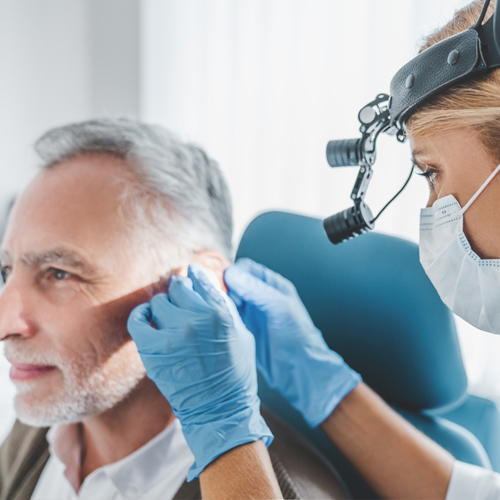Hearing Evaluations
Making Better Hearing Convenient: at your home or at our office

Hearing Evaluations
A hearing evaluation is a comprehensive process designed to assess your hearing ability and identify any potential issues. Here’s what you can typically expect:
- Initial Consultation: You’ll start with a discussion about your medical history, any hearing problems you’ve noticed, and any relevant lifestyle factors. The audiologist might ask about any exposure to loud noises, family history of hearing loss, and other health conditions.
- Otoscopy: The audiologist will examine your ear canals and eardrums using a small instrument called an otoscope. This helps them check for any blockages, infections, or structural issues that could affect hearing.

Hearing Tests
- Tympanometry: This test assesses the movement of your eardrum in response to changes in air pressure. It helps evaluate the condition of the middle ear and eustachian tube function.
- Pure Tone Audiometry: You’ll listen to a series of tones at different pitches and volumes through headphones. You’ll need to signal whenever you hear a tone. This test helps determine the faintest sounds you can hear at different frequencies.
- Speech Audiometry: This involves listening to words or sentences at different volume levels to see how well you understand speech. The audiologist will measure your ability to hear and repeat these words or sentences.

Additional Tests (if necessary)
- Otoacoustic Emissions (OAEs): Small sounds are played into your ear to check the function of the inner ear (cochlea). This test is often used for newborns or to further assess hearing.
- Auditory Brainstem Response (ABR): Electrodes are placed on your head to measure the brain’s response to sound. This test is useful for diagnosing hearing loss in infants or people who can’t participate in standard tests.
Results and Discussion
- The audiologist will explain the results of the tests and discuss any hearing loss detected. They’ll provide recommendations, which might include hearing aids, further medical evaluation, or other interventions.
Follow-up
- Depending on the results, you may need follow-up appointments to monitor your hearing or to adjust any hearing aids or devices.
The evaluation is usually painless and non-invasive, but it can take a bit of time, so be prepared for a thorough process.
